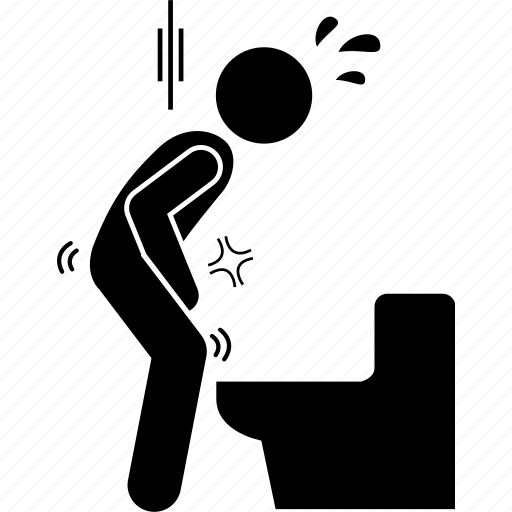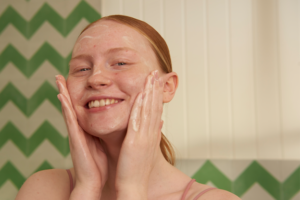The constant urge to urinate can severely disrupt daily life, sleep, and overall well-being. This persistent need, whether daytime frequent urination or nighttime nocturia, is a surprisingly common issue. For some, it’s a minor annoyance, but for many, it significantly impacts confidence and quality of life, becoming a significant challenge that requires attention and effective strategies.
While various causes contribute to frequent urination, numerous practical tips and strategies exist to manage symptoms and provide meaningful relief. This comprehensive guide will explain what this condition entails, explore lifestyle adjustments, dietary considerations, and behavioral techniques like bladder training. By understanding and executing these strategies, you can begin to regain control, improve comfort, and live more confidently.
Understanding Frequent Urination
Before diving into management tips, let’s clarify what frequent urination means. It’s generally defined as needing to urinate more often than usual, which can be described as more than eight times in a 24-hour period for daytime urination, or waking up multiple times during the night to urinate (nocturia).
It’s important to briefly note some common underlying causes, though this list is not exhaustive and a proper diagnosis should always come from a doctor:
- Urinary Tract Infections (UTIs)
These are common culprits, causing bladder irritation and a regular urge to urinate, often accompanied by pain or burning.
- Overactive Bladder (OAB)
This condition involves a sudden, uncontrollable urge to urinate, often leading to involuntary leakage.
- Diabetes
Both Type 1 and Type 2 diabetes can lead to elevated urination as the body tries to get rid of excess blood sugar.
- Prostate Issues (in men)
An enlarged prostate can press on the urethra, leading to frequent urination, especially at night.
- Pregnancy
The growing uterus puts pressure on the bladder.
- Certain Medications
Diuretics (water pills) for high blood pressure or heart conditions are designed to increase urine output.
- Bladder Irritation
Certain foods and drinks can irritate the bladder lining.
- Anxiety/Stress
Psychological factors can sometimes exacerbate bladder symptoms.
Importance Of Diagnosis
While the tips in this article focus on management, it’s crucial to understand that they do not replace a proper medical diagnosis. If you’re experiencing frequent urination, especially if it’s new, sudden, painful, or accompanied by other symptoms, always ask a healthcare professional to determine the underlying cause.
Lifestyle Adjustments For Management
Simple alteration to your daily habits can make a suggestive difference in managing frequent urination.
- Timing Fluid Intake
A key strategy is to adjust when you consume fluids. Try to reduce your fluid increment a few hours before bedtime, particularly avoiding caffeinated or alcoholic beverages, which act as diuretics and can stimulate the bladder.
- Spread Out Intake
Instead of chugging large amounts of water at once, try sipping smaller amounts throughout the day. This allows your bladder to fill more gradually.
- Adequate Hydration
It’s vital to stress that you should still stay adequately hydrated overall. Dehydration can paradoxically lead to more concentrated, irritating urine. The goal is more brilliant hydration, not less hydration.
- Regular Exercise
Engaging in regular physical activity benefits your overall health and can contribute to better bladder control. Specific mention should be made of pelvic floor exercises, commonly known as Kegels, which strengthen the muscles supporting the bladder and urethra. Consult a professional to learn the correct technique.
- Weight Management
Excess body weight can put extra pressure on your bladder, potentially worsening symptoms. Losing even a small measure of weight can sometimes provide relief.
- Sleep Hygiene
Improving your overall sleep quality can reduce nighttime awakenings for urination. Establish a standard sleep schedule, create a comfortable sleep environment, and avoid electronics before bed.
- Managing Stress
Stress and anxiety can significantly worsen bladder symptoms for many people. Incorporate stress-reducing method into your routine, such as meditation, deep breathing exercises, yoga, or spending time in nature.
Dietary Considerations for Relief
What you eat and drink can have a direct impact on your bladder. Identifying and adjusting your diet can provide substantial relief.
- Identify Bladder Irritants
Certain foods and beverages are known to irritate the bladder and increase the urge to urinate. Consider reducing or eliminating:
- Caffeine
Found in coffee, tea, soda, and chocolate, caffeine is a diuretic and a bladder stimulant.
- Alcohol
Acts as a diuretic and can irritate the bladder lining.
- Acidic Foods
Citrus fruits (oranges, lemons, grapefruit), tomatoes, and vinegar can sometimes bother sensitive bladders.
- Spicy Foods
The capsaicin in spicy foods can irritate the bladder lining for some individuals.
- Artificial Sweeteners
Some people report increased bladder symptoms after consuming artificial sweeteners.
- Increase Fiber Intake
Constipation can put pressure on your bladder, leading to increased urinary frequency. Eating a diet rich in fiber (from whole grains, fruits, vegetables, and legumes) can help prevent constipation and promote regular bowel movements.
- Stay Hydrated (with plain water)
While reducing fluid intake at certain times is helpful, don’t become dehydrated. Concentrated urine from dehydration can be more irritating to the bladder than diluted urine. Stick to plain water as your primary beverage.
Behavioral Techniques And Bladder Training
Beyond diet and lifestyle, specific behavioral strategies can help you regain control over your bladder.
- Bladder Retraining
This technique involves gradually increasing the time between bathroom visits. Start by trying to hold your urine for an extra 15 minutes beyond your usual interval, then slowly extend this time over days or weeks. The goal is to extend intervals and increase your bladder’s capacity.
- Double Voiding
After urinating, wait a few moments (e.g., 30 seconds) and then try to urinate again. This can help ensure your bladder is completely empty, especially useful if you have difficulty emptying fully.
- Scheduled Voiding
Instead of waiting for the urge, try to urinate at set times during the day (e.g., every 2-3 hours). This helps train your bladder to hold more urine and reduces urgency.
- Distraction Techniques
When you feel a strong urge to urinate, try to distract yourself before rushing to the bathroom. Take a few deep breaths, count backwards, or focus on a simple task. This can help you hold off longer and retrain your bladder’s signals.
When To Seek Medical Help
While these tips can provide significant relief, it’s crucial to know when to consult a healthcare professional.
- Sudden Onset or Worsening
If frequent urination begins suddenly, worsens rapidly, or is accompanied by other concerning symptoms like pain or burning during urination, fever, chills, back pain, or blood in your urine, seek medical attention immediately. These could be signs of a urinary tract infection or other acute conditions.
- Affecting Quality of Life
If frequent urination significantly impacts your sleep, work performance, social activities, or overall mental well-being, it’s time to talk to a doctor. They can provide diagnosis and professional guidance.
- Symptoms of Other Conditions
If frequent urination is accompanied by excessive thirst and fatigue (potential signs of diabetes), or difficulty starting urination/weak stream (potential prostate issues in men), these warrant a medical evaluation.
Potential Medical Interventions
A doctor can assess the cause and may suggest:
- Medications
Specific medications are available for conditions like overactive bladder to relax the bladder or reduce spasms.
- Treatment for Underlying Conditions
For example, antibiotics for UTIs, or treatments for diabetes or prostate enlargement.
- Lifestyle Counseling
A doctor or specialist can provide personalized advice on diet, fluids, and exercise.
General Comfort And Coping Strategies
Beyond direct management, adopting a few simple strategies can improve your comfort and confidence.
- Wear Loose-Fitting Clothing
Avoid tight clothing or waistbands that put pressure on your bladder area.
- Use Bladder Control Products
For added confidence and peace of mind, especially when going out or traveling, absorbent pads or protective underwear can be helpful. These products are discreet and can prevent leaks, allowing you to live more freely.
- Plan Ahead
When leaving home, make it a habit to identify the location of restrooms at your destination or along your route. This foresight can reduce anxiety and urgency.
- Communicate
If frequent urination is impacting your social life or relationships, don’t hesitate to talk openly with trusted family members, friends, or a support group. Sharing your experience can alleviate stress and help others understand your needs.
Conclusion
Living with frequent urination can undoubtedly be challenging, but it doesn’t have to control your life. A combination of thoughtful lifestyle adjustments, careful dietary awareness, and consistent behavioral techniques like bladder training can significantly improve your symptoms and offer meaningful relief.
Seek Expert Medical Advice
These practical tips, when combined with professional medical guidance, offer a clear path towards better management and a substantial improvement in your quality of life. Understanding the underlying cause and adopting a personalized approach is key to taking back control. For reliable health information and to learn more about comprehensive medical care, consider exploring resources from reputable institutions such as Mahidol University’s Faculty of Medicine Ramathibodi Hospital at www.rama.mahidol.ac.th.
Frequently Asked Questions
1. Is it advisable to drastically reduce my water intake to lessen frequent urination?
No, it is not advisable to drastically reduce your water intake, as proper hydration is crucial for overall health and concentrated urine can actually irritate the bladder, potentially worsening symptoms; the goal is to manage when and how you drink fluids, rather than reducing your overall daily intake.
2. How long does it usually take to see improvements from bladder retraining techniques?
The time it takes to see improvements from bladder retraining varies for each individual, but consistent practice over several weeks to a few months is typically needed to gradually increase bladder capacity and reduce urgency.
3. Are there any specific types of exercises, beyond Kegels, that are particularly beneficial for improving bladder control?
Beyond Kegel exercises, engaging in low-impact activities such as walking, swimming, or cycling can strengthen core muscles and contribute to overall pelvic health without putting excessive pressure on the bladder, supporting better bladder control.
4. Can anxiety and stress directly cause frequent urination, or do they only make existing symptoms worse?
Anxiety and stress can indeed directly cause frequent urination for some individuals by affecting nerve signals to the bladder, while for others, stress primarily exacerbates existing bladder symptoms, making the urge more pronounced and more challenging to ignore.
5. What is the main difference between frequent urination and urinary incontinence?
Frequent urination refers to needing to urinate more often than usual, while urinary incontinence specifically means experiencing involuntary leakage of urine, which can range from a few drops to a complete emptying of the bladder.





Be First to Comment